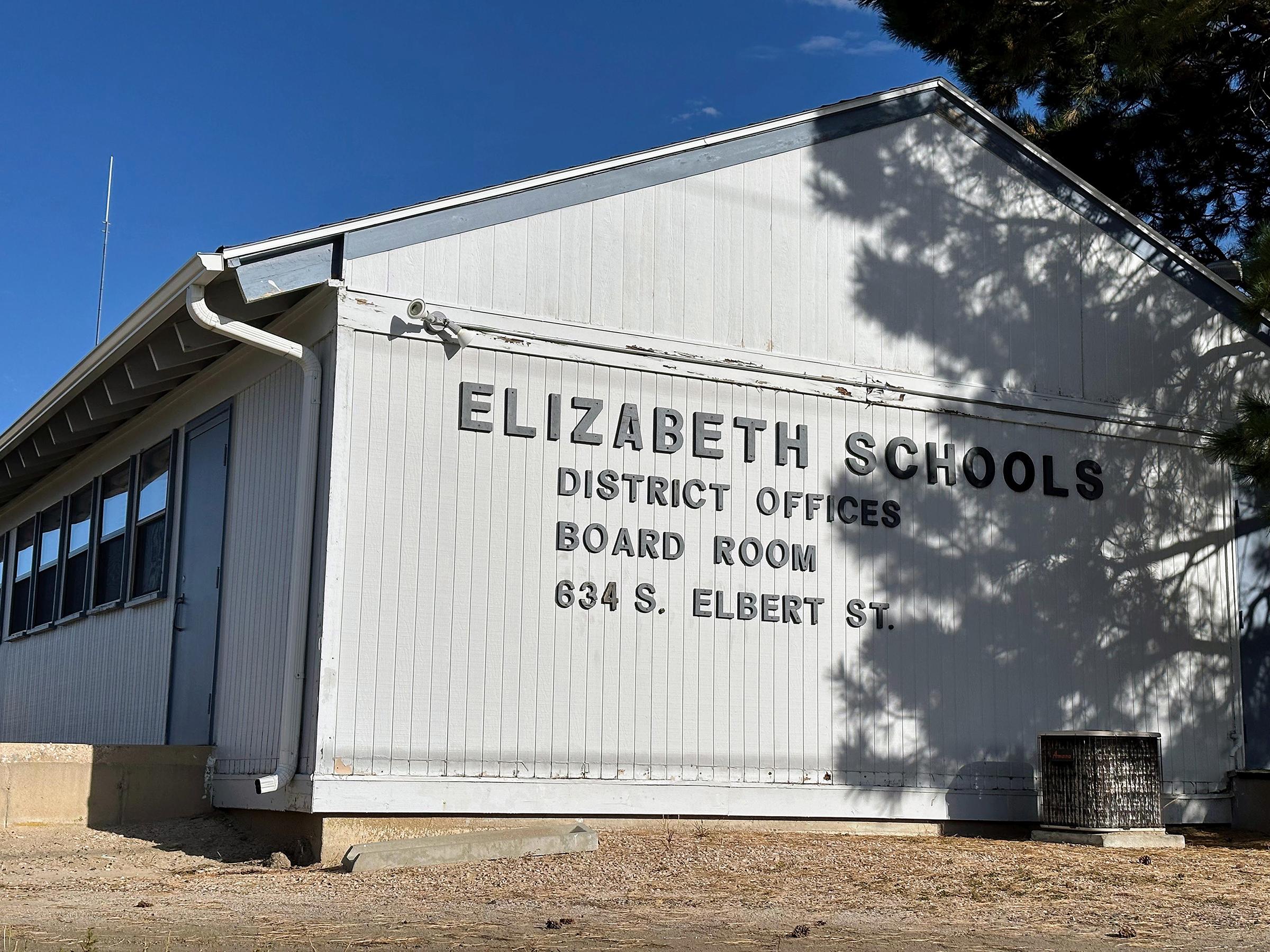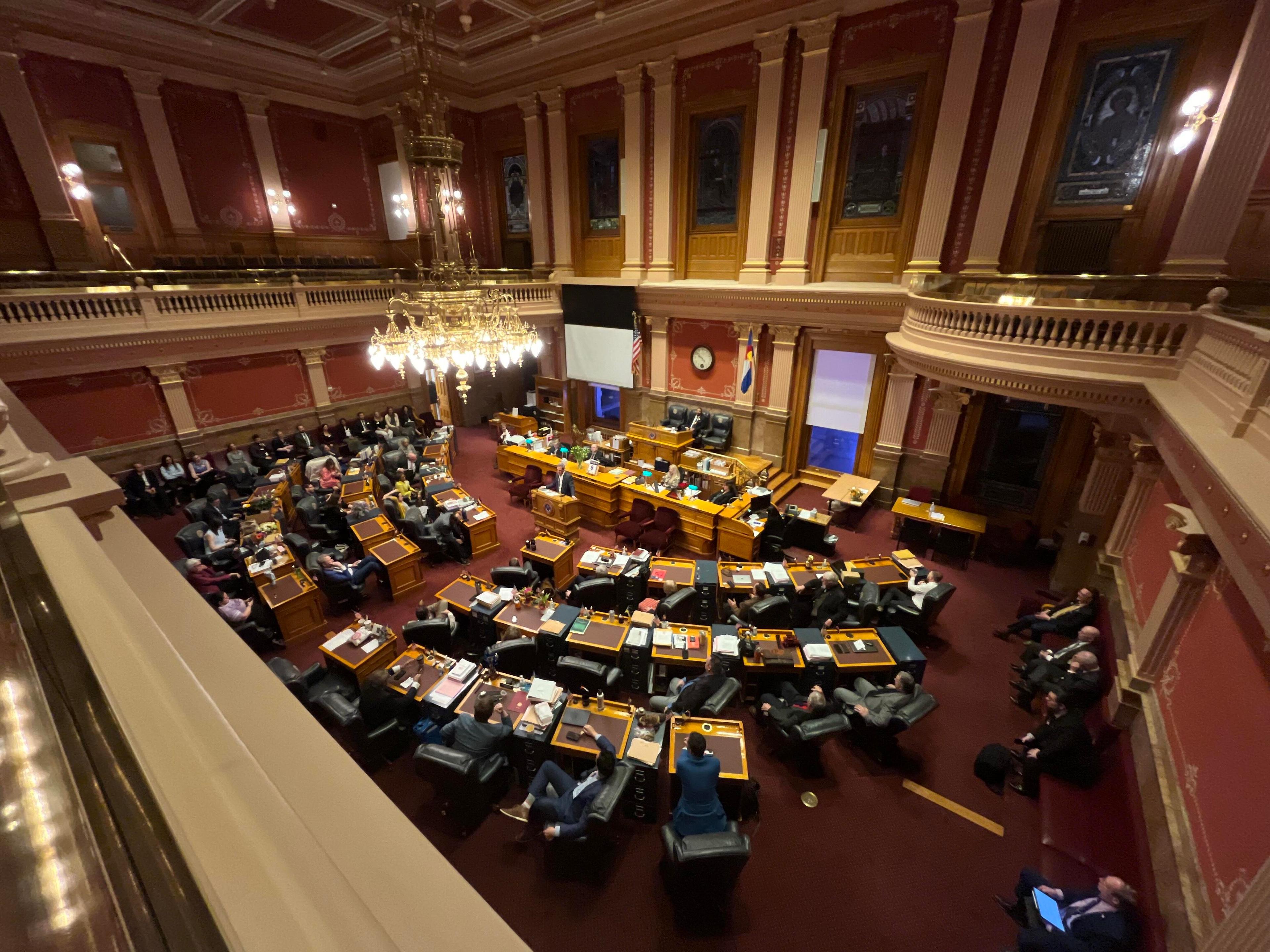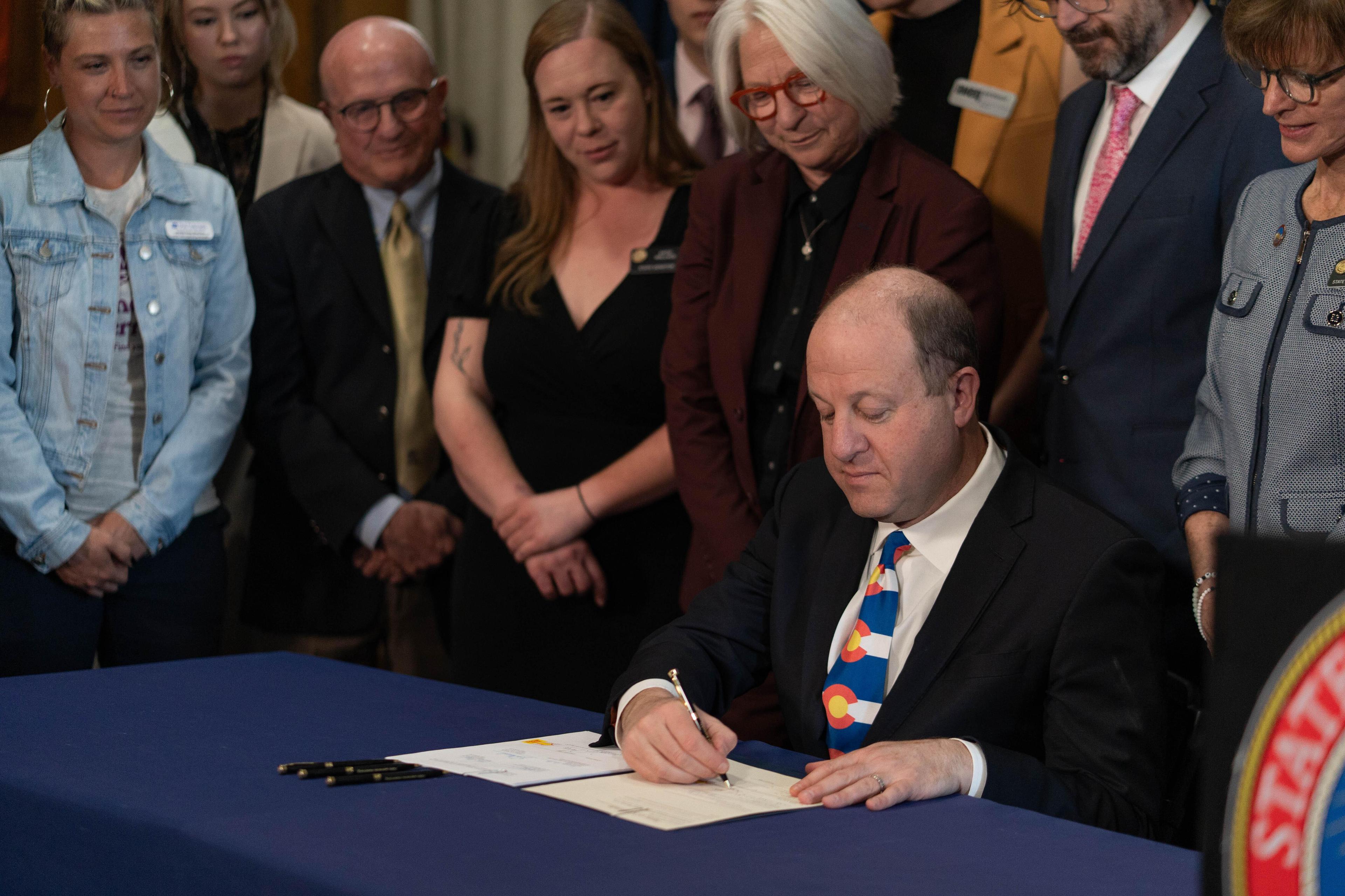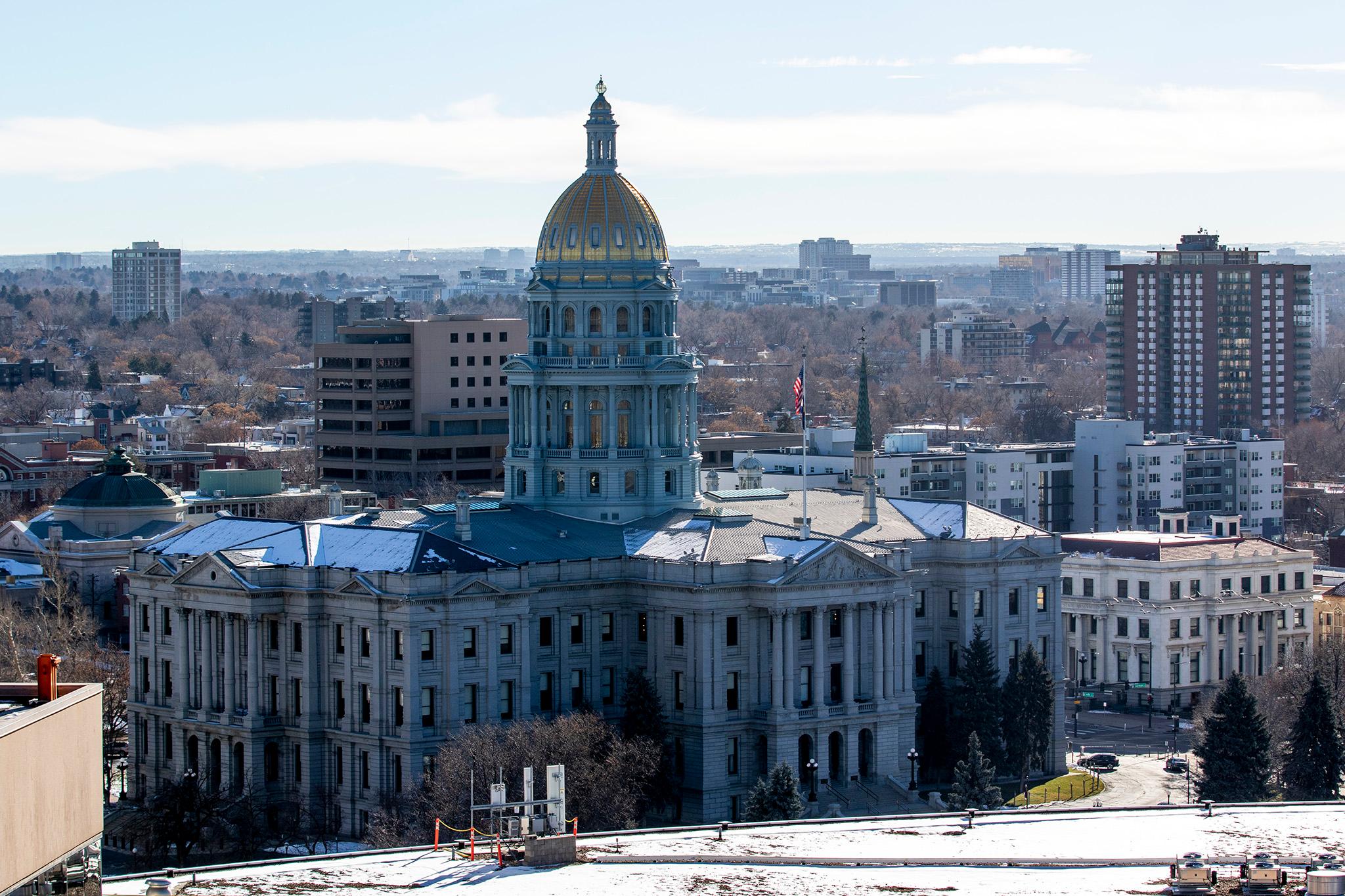
This story was originally published in The Colorado Sun.
By Brian Eason, The Colorado Sun
From the moment of its founding in 1999, the congregation at Restoration Christian Fellowship has been in search of a permanent home.
The nondenominational church held its first service in a middle school, then did a stint in a run-down office building before relocating 17 years ago to an old electronics store in an Aurora strip mall. Its congregation has gathered there ever since, with plans to build something bigger and better next door.
Church leaders this month will finally break ground on the 9-acre patch of dirt it set aside for its future building. But in the wake of the pandemic, which sent worship services online and a homelessness crisis to its doorstep, the church’s ministry changed. And so did its plans for the vacant lot.
Instead of building a home for itself, Restoration Christian Fellowship last week closed on a deal to develop 179 low-income housing units on the church’s land, Senior Pastor Kotane Gilbert told The Colorado Sun. As religious congregations shrink across the U.S., the project is a potent example of the role that housing advocates believe churches can play in addressing the nation’s housing shortage.
This week, Colorado Democrats introduced legislation to become one of the first states in the country to allow religious institutions to build housing on their land — whether it’s zoned for residential construction or not.
The measure was inspired by the “Yes In God’s Backyard” movement, or YIGBY. Think of it like a religious counterweight to NIMBYism — the acronym for not in my backyard, which has long been used as a derisive label for the neighborhood-level opponents of new housing.
House Bill 1169, sponsored by Democratic Rep. Andrew Boesenecker of Fort Collins, would go beyond just churches, allowing public schools and universities to build housing on their land as well. It allows for up to three stories, but churches could build even higher densities if neighboring buildings are already taller.
“This can really move the needle in a meaningful way,” said Boesenecker, a former Lutheran minister. “We’re building housing where it makes sense, and really taking care of one of those huge question marks, which is can we get the land, and how much does it cost?”
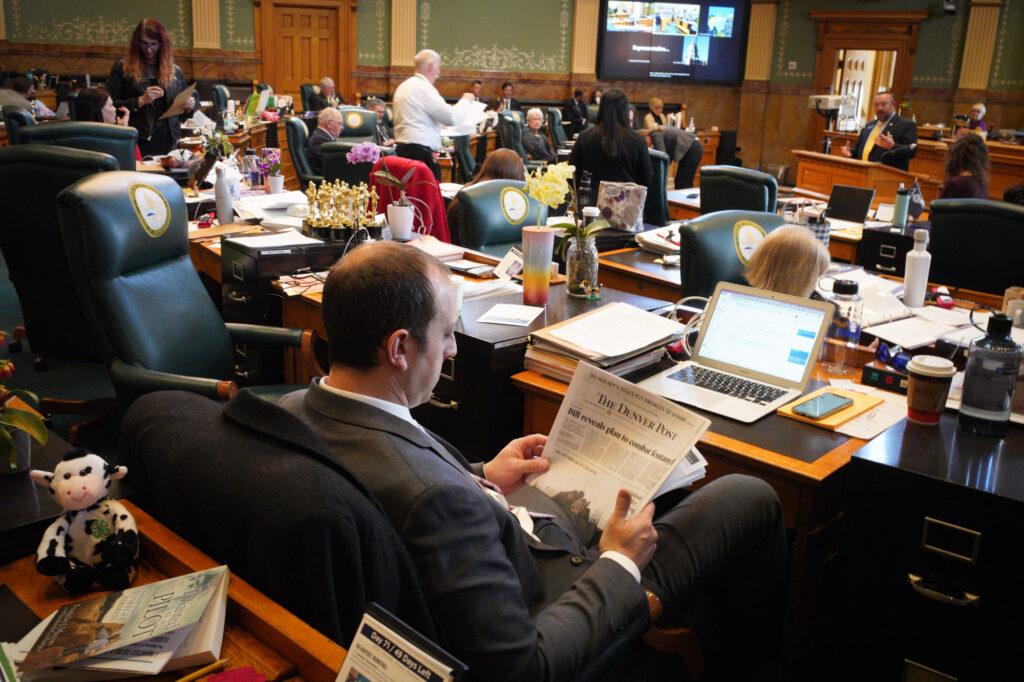
The proposal is the latest faultline in Colorado’s ongoing debate over the role local zoning laws have played in today’s housing shortage, and how far the state should go to force local governments to allow more housing in their communities.
Gov. Jared Polis and many legislative Democrats say restrictive local land use policies and neighborhood resistance have exacerbated the affordability crisis by delaying or outright preventing new housing from being developed.
But opponents see the measure as an unwelcome escalation of the state’s recent efforts to wrest control of land use decisions away from local officials, eroding the power of residents to determine how their communities develop around them.
“If anyone who has all these great ideas would actually work with local governments instead of treating them like the enemy, beginning with Prop. 123 through today, we would be three years farther down the road than we are right now,” said Kevin Bommer, the executive director of the Colorado Municipal League, alluding to the 2022 measure to designate funding for affordable housing projects. “So here we go again.”
A new form of ministry
The YIGBY moniker was popularized in San Diego, where a nonprofit of the same name has been spearheading efforts to build housing on church land.
In 2019, San Diego updated city zoning laws to allow housing in church parking lots. Four years later, the state of California passed a law of its own to prevent cities from blocking housing projects on land owned by churches or nonprofit colleges for zoning or environmental reasons.
Housing advocates see huge potential in churches. A 2023 UC Berkeley study found that there’s more than 47,000 acres of vacant church land in California alone that could be used for housing. And church leaders all over the country are buying in.
“We’ve talked to probably 25 churches just in San Diego,” said Evan Gerber, a project manager with YIGBY, the San Diego nonprofit, which now helps churches with project development and financing. “I get weekly, biweekly contacts — mostly from outside California.”
It’s not clear how much church land could be tapped across Colorado. But the movement’s supporters say there’s at least 5,000 acres of undeveloped church land in Denver, Jefferson, Arapahoe and Douglas counties alone. At 10 to 20 units an acre for a townhouse, if even a fraction of that becomes housing, it could bring thousands of new homes to market, ideally at an affordable price point.
Habitat for Humanity of Metro Denver has two projects in the works right now on church land. For a nonprofit housing developer like Habitat, that land is the difference between making a home affordable for working class residents or not.
“Land is one of the most expensive resources and scarce resources that we have — especially in metro Denver,” said Laura Willetto, a spokesperson for Habitat. “Land partnerships allow us to sell the home affordably. If we were having to purchase land outright it would be impossible to do.”
It’s not just metro Denver. Housing professionals say church land can have special value in rural areas, too, because they’re often already equipped with things that other empty parcels lack: water lines and electricity.
To faith leaders like Gilbert, housing is a natural extension of their mission to provide for those in need.
When the pandemic hit, her church got federal funding to provide people a safe place to sleep in their cars in Restoration’s parking lot. Then the Aurora church went a step further, partnering with the Salvation Army to set up a homeless camp, complete with temporary prefabricated housing units about the size of a shed.
“Our vision and mission has always been to help the homeless,” she said. Her late husband, church founder Felix Gilbert, was homeless himself during his senior year of high school.
But not all local governments are as accommodating of that mission as Aurora. The town of Castle Rock last year tried to stop an evangelical church, The Rock, from letting homeless people stay in camper vans in their parking lot, in violation of city zoning rules.
The church sued in response, arguing that caring for those in need is a federally protected form of religious expression. A federal judge in July temporarily barred the town from enforcing its zoning laws while the court battle proceeds.
“There are a lot of churches out there that once they start saying we want to do something with our property, we want to develop affordable housing, they encounter well-organized resistance that find all the levers that can be pulled in city planning to stop development of that housing,” said Ben Hensley, a pastor at Lakewood United Methodist Church, which is considering a housing project of its own.
“This is a ministry of a church,” he argues. “This is an expression of a church’s ministry, just like the hospitals churches founded throughout history.”
Projects 'stopped dead'
In Restoration’s case, securing proper zoning for the project wasn’t a major hurdle. But it did take time.
Gilbert told The Sun it took the better part of four years to take the project from the drawing board to the start of construction.
“There were hurdles, but they were easy to climb because we knew what we were doing,” she said. “We had professionals on our team who knew how to navigate” the zoning process and secure financing and other needed approvals.
Nonetheless, she said, “it was a very long, tedious process.”
Sometimes, the re-zoning step can be fatal.
Kathleen Van Voorhis, the chief executive officer with the housing-focused nonprofit Community Investment Alliance, said she’s worked with churches on projects that have taken two years to get rezoned. She’s also seen zoning restrictions block housing at churches — in recent years, “at least 500 units didn’t move forward in the Denver metro area alone,” Van Voorhis said.
The projects were “stopped dead because of zoning,” she said.
But if the goal is to create affordable housing, supporters of local control say the bill could backfire.
A number of new state laws already require local governments to take steps to increase the supply of affordable housing for low-income residents, or risk losing out on state funding, including Proposition 123 dollars. One of them, last year’s bipartisan Senate Bill 174, tasks the state and local governments with conducting housing needs assessments, then making plans to meet those needs. This bill, local government advocates argue, circumvents that planning process.
And, while the bill would allow churches to build housing on their land, it doesn’t require it to be affordable. That could create an incentive for for-profit developers to target land owned by churches to bypass zoning requirements, then build market rate units.
“This is precisely why even well-intentioned legislators at the state level should be leaving the business of local governance up to local governments to make sure that, in this case, if there’s a need for more affordable housing we’re actually going to get it,” said Bommer, with the Colorado Municipal League. And, he added, that it happens “in a manner that’s consistent with what the community’s interests are and their long-term planning.”
Boesenecker told The Sun the bill avoids affordability requirements for a reason. It can be hard to finance projects in rural areas, so adding income limits could prevent housing from being built at all.
While supporters are bullish about the measure’s potential, it’s unlikely to make much more than a dent in Colorado’s housing shortage, estimated as high as 300,000 units over the next few years.
In San Diego, YIGBY set a goal of 3,000 units on faith property by 2025. Gerber said they’re building their first project now — a 26-unit complex for low-income seniors and veterans.
This story was produced by the Capitol News Alliance, a collaboration between KUNC News, Colorado Public Radio, Rocky Mountain PBS, and The Colorado Sun, and shared with Rocky Mountain Community Radio and other news organizations across the state. Funding for the Alliance is provided in part by the Corporation for Public Broadcasting.

